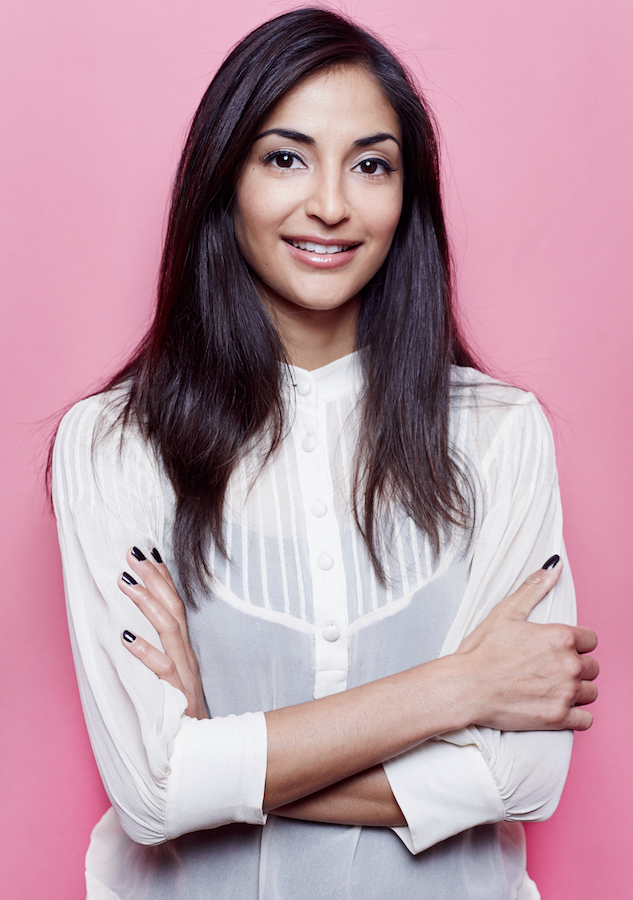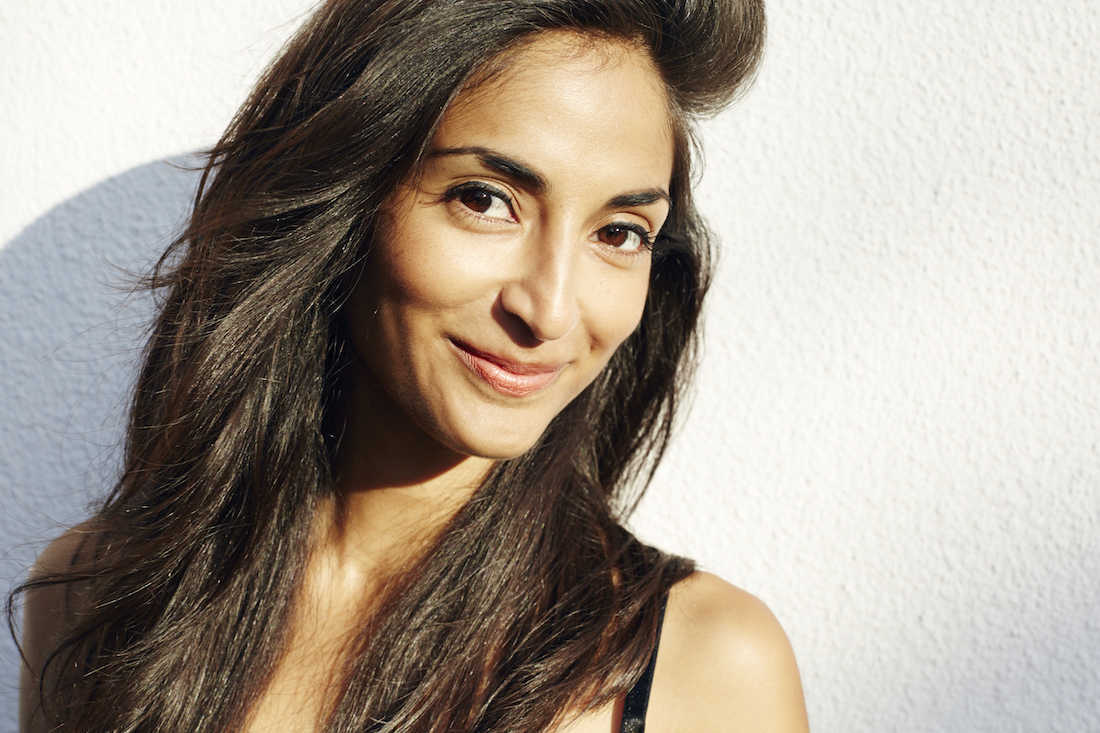
Asha Dahya: Fighting For Women’s Reproductive Rights in the Trump Era
June 21, 2018
Rana Good is the founder of Naïra NYC. A writer for publications such as Forbes, Travel + Leisure, Coveteur, Mens Journal and others, she created her own platform celebrating women of color.
Asha Dahya is a vocal advocate for women’s empowerment, reproductive rights and minority representation. On her website GirlTalkHQ she profiles female entrepreneurs, politicians and social activists, and also tackles hot button subjects like the gender wage gap, #MeToo movement and intersectional feminism. She’s also working on a docu-series called Life at All Costs – Going Beyond Pro Choice Vs. Pro Life which explores abortion and maternal health in the United States from a variety of vantage points. We spoke to Dahya about how she first become interested in championing women’s rights and how she hopes to evoke change with her website and documentary.
You juggle multiple projects at the same time. What does a typical day look like for you?
Asha Dahya: I definitely don’t have a typical day. I have a blog called GirlTalkHQ which I started in 2012. I consider it my main side gig. For my day job, I work in TV where I do a lot of producing, writing, and on-camera hosting. I’ve worked for a number of different clients from MSN to Nickelodeon to political, beauty and lifestyle platforms for the past 15 years. Now I’m moving into film-making and creating a docu-series around reproductive rights because it’s a passion that I’ve been cultivating over the past few years. I really thought that becoming a filmmaker and creating my own shows and content would be a great way to be part of the resistance.
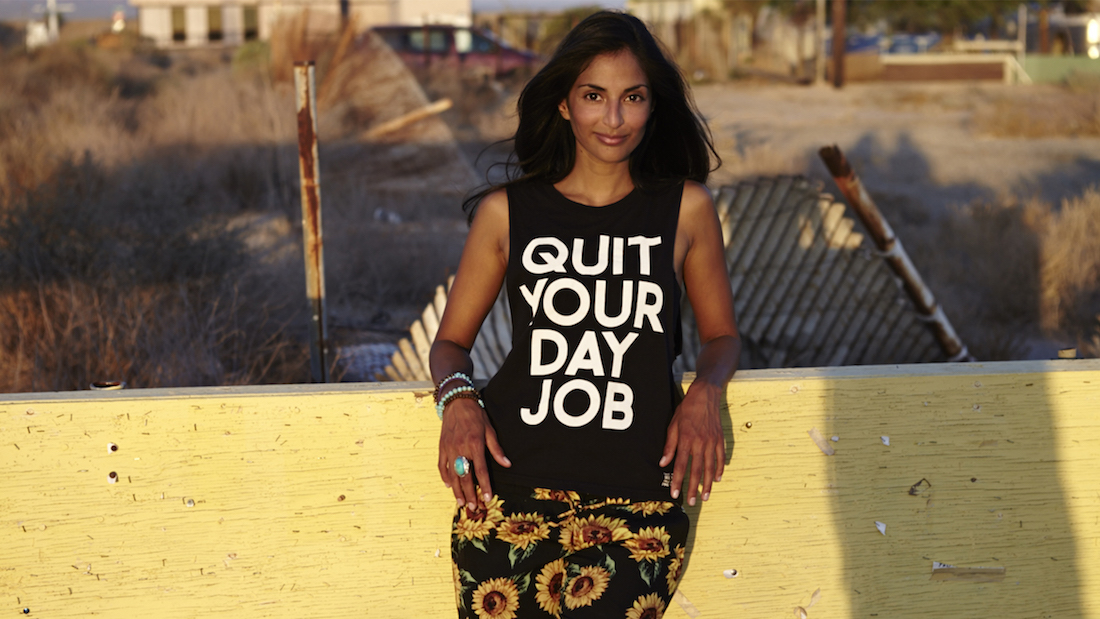
You have a very personal relationship with becoming an advocate for women’s rights. Can you tell me more about that?
I do. I had a really conservative, evangelical background growing up in Australia. Although the political and religious landscape in Australia is very different than America, we grew up with all the same cultural evangelical rules and mandates. Things like purity culture, no sex before marriage, being taught that being gay is wrong and not to have an abortion. When I moved here in 2008, I started going to a church which I later came to realize was so conservative it was almost fundamentalist. I quickly got an indoctrination into the religious and political environment. They would hand out flyers during election time and wouldn’t directly say “vote Republican” but they would say like “vote right, wink wink.” I was 24/25 at the time and not a political person, so I was like “Oh God, I guess this is normal.” The more I got involved in that church I started to see things that were just not right, like the way they would treat women. Once I left that church the bubble burst for me; I started to form my own opinions about politics, society and women’s issues. That’s how I got introduced to feminism. Before I was always told that feminism is an awful thing out to destroy families. I realized that there are women who are suffering in silence and who don’t have a voice, women who are trapped in abusive marriages being counselled to go back to abusive husbands. And there are young women who are secretly having sex before marriage and a number of them also secretly getting abortions. When I left the church I started stating my views publicly and a number of the women that I knew felt confident enough to tell me [about their abortions]. And I was like, I’m honored that you’re telling me but there’s a problem that you don’t feel comfortable saying something that’s really important and possibly very difficult. I really wanted to give voice to the things that women were fighting for and didn’t have, which is one of the reasons I started GirlTalkHQ.
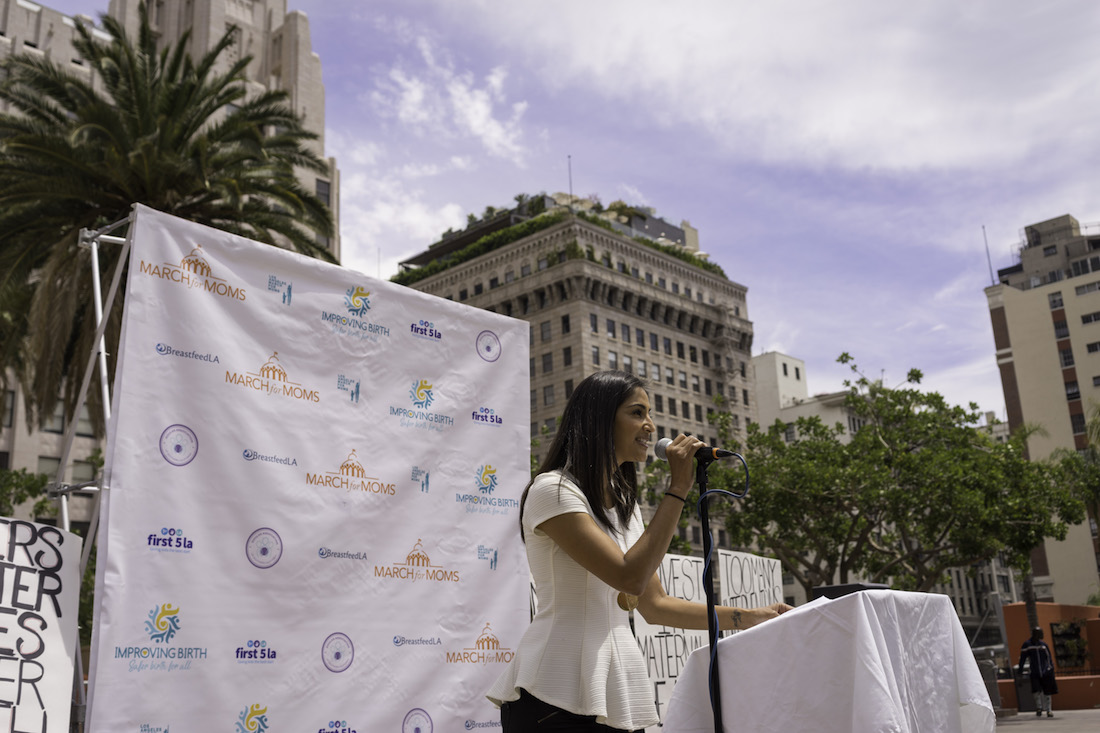
What made you decide to start working on your documentary Life at All Costs?
When I left my church, I changed my views politically especially about reproductive rights. As I mentioned before, many women secretly told me that they’d had abortions and a lot of them didn’t regret it. They knew it was the best decision for them, but yet outwardly they would claim to be pro-life. I started researching the data about what causes women to get abortions and it really challenged my views and changed my mind. It made me really want to do something with my media career to help. Remember in 2015 when those Planned Parenthood videos came out reportedly showing that Planned Parenthood employees talking about baby parts? A lot of my friends from my old church on Facebook talked about Planned Parenthood selling baby parts and thought to myself, how do you infiltrate that noise since there’s just no room for facts or nuance? I read one blog post by a Christian author who is pro-life who was writing that if we’re really going to bring every single baby to term in the United States this is what it needs to look like – we’re going to have to have more people adopting babies, better access to birth control, we need to have maternity leave and a support system in place.
That kind of got me thinking what are some really viable solutions? I came up with this idea of putting together a docu-series that instead of just looking at abortion itself would look at the surrounding issues such as poverty, financial status, or lack of access to health care. I also wanted to find a way to bring both pro-choice and pro-life people together. I wanted to find out how do we truly value life.
Why do you think the medical community is failing women?
Maternal mortality is like a huge issue in the United States and it shouldn’t be. We’re the only developed country in the world where the maternal mortality rates are rising; everywhere else they’re decreasing. A lot of that has to do with our fractured healthcare system and your health depending on your zip code and your financial status when it shouldn’t. Other developed countries have universal healthcare. Additionally in terms of maternal mortality there’s a lot of systemic racism because the majority of women who are dying from childbirth are black women. The rate is three to four times higher, which is insane. A lot of women’s voices are just not being heard in the delivery room. There’s also the issue how the health care system doesn’t listen to women, it thinks that we exaggerate our pain.
This translates in the delivery room when women complain of abdominal pains or other sorts of pains after childbirth. Doctors end up just brushing them off and saying “oh no, that’s normal, you just gave birth.” And then 24 hours later some of these women die from pulmonary embolism or other complications. There’s so much focus on abortion and what’s going to happen with this unborn fetus but what about the mother? Is her life valuable? That’s something I want to explore in the documentary.
Why do you think that there are some issues that specifically affect women of colour so much more than with women in general?
America has a long history of racism – it’s part and parcel of its creation. Because of that, black and brown people are more likely to live in low-income communities where they don’t have access to good preventative healthcare. This leads to higher rates of women of color dying from things that should be entirely preventable in a country like America. Looking at another situation the majority of incarcerated people in America are people of color and the rate of incarcerated women is rising faster than incarcerated men today. They’re not getting adequate maternal care and often being shackled to hospital beds while they’re giving birth. They’re not allowed to touch their babies and be present in that incredible moment of giving birth. It’s just so horrific and women of color are disproportionately being affected in the prison system. If we’re going to talk about feminism and women’s rights it has to be intersectional otherwise there’s no point.
What are your thoughts on paid parental leave in America?
All parents should have access to it, not just mothers. I was born in England, grew up in Australia and both countries have paid leave. It’s wonderful, it doesn’t depend on what job you have or how rich you are, there is a guarantee that if you have a job you’re not going to lose it. You can take at least 12 weeks off and bond with your child and have time to recover. In America, there’s the Family Medical Leave Act which number one, doesn’t apply to everyone, number two, it’s not paid. I believe only 15 percent of people in America today have access to company paid leave.
Republicans like to tout their family values and being pro-life but it doesn’t show in their policy. I’ve yet to see a Republican want to make sure that the family unit is looked after. Post-birth trauma, PTSD, postpartum depression and postpartum psychosis are very serious conditions and paid leave can help prevent and manage them. There should be a system where women are allowed to recover, have time to heal, have people supporting them and making sure their mental health isn’t compromised. I think that would really change the landscape of maternal mortality and suicides. I read on the CDC Web site that suicide is the second leading cause of death of mothers in their first year postpartum. I’m like, excuse me, suicide? It just floored me.
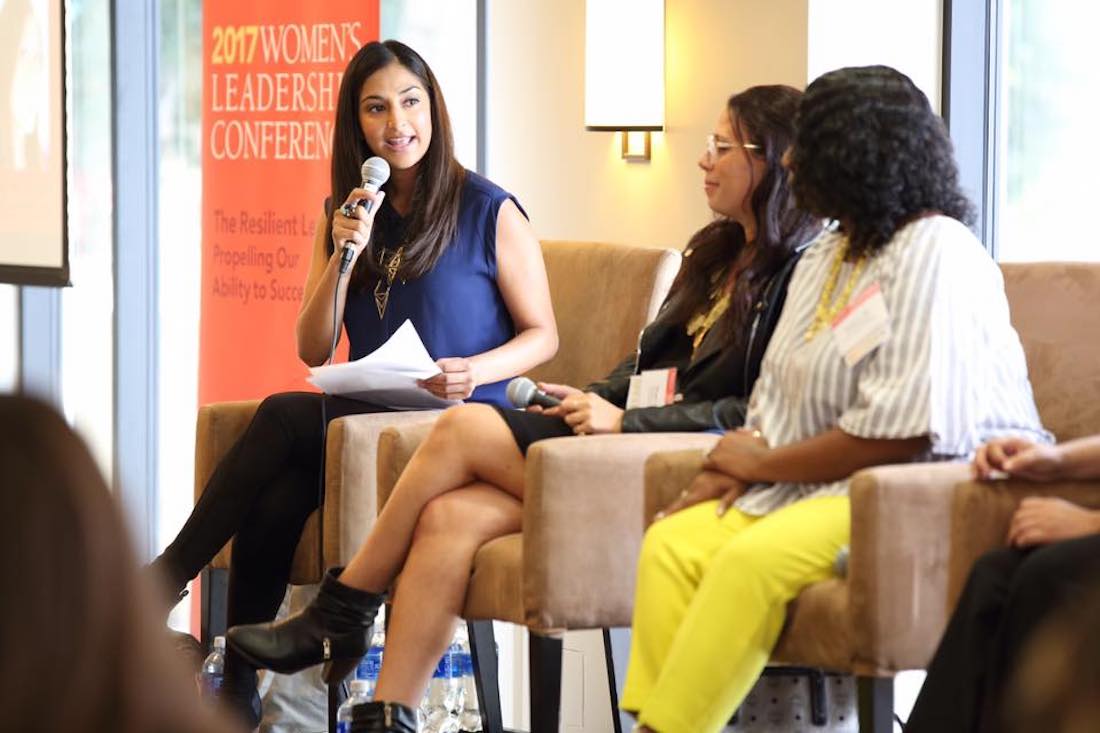
What effect does the Trump Administration have on women’s rights?
I’ll specifically drill it down to reproductive issues because that’s something that I’m keenly aware of. The first bill that Obama signed was the Lilly Ledbetter Act which was about equal pay. The first one that Trump signed was the Global Gag Rule, which every Republican president does. Trump signed it but also expanded Global Gag Rule which affects billions of dollars of funding in women’s healthcare around the world. It also affects NGOs that are trying to provide the best healthcare for women globally. They’re floating the idea of doing a domestic Gag Rule, where any organization that receives federal funding cannot even mention the word abortion or discuss it as any type of option of healthcare procedure in fear of losing funding. It’s just so negligent and just so ignorant facts or nuance in the complexity of abortion that it just makes me so mad. It has Mike Pence’ signature all over it. They also want to roll back to the birth control mandate in the ACA. If you really want to reduce abortion rates you make sure birth control is available but they don’t care about that.
They’re also allowing medical professionals to deny LGBTQ people and women certain types of healthcare based on their own religious conscience and moral objections. Religious objections alone are just ridiculous. Why be in the healthcare profession if you have religious objections to certain things? Go work in a church where you can be protected by all that.
This is going to disproportionately affect low income people of color and immigrant communities, especially those that receive federal funding. Rich people are always going to have access to the best healthcare. Rich women are always going to have access to abortion no matter how against it they are, Republican women get abortions too.
At the Health and Human Services Department Trump and Pence have appointed all these people who are pushing abstinence-only, which has been proven not to work. They want to get rid of funding for teen pregnancy prevention programs. They want to take the money away from Title X Funding which is about family planning and put that towards abstinence-only education. These are ridiculous, religiously motivated ideas that have no evidence of working in society.
With your site GirlTalkHQ you give women from all walks of life a platform. What is your mission with GirlTalkHQ?
I started GirlTalkHQas a platform to share women’s stories. I wanted to write articles about women that I thought were doing badass things that weren’t getting enough media attention. From there it grew into a way for me to focus on a few key issues – the representation of women in media, politics and the business world. I wanted to shine a light on women who are doing amazing things whether it be in the social justice space, starting businesses or helping other people in their community. I really started to crave that kind of environment where women were being supportive of one another and their stories were being uplifted, especially women of colour who were largely ignored by mainstream media.
I have managed a number of different guest bloggers and receive requests every day from people, especially women, wanting to share their stories. I’ve had a few men write for the site which is great and definitely encouraging to see that there are men out there reading it. It’s become this site that I’ve always dreamed of.
This is a big question that I’m certain you could spend a lot of time answering, but what are what are some changes you would like to see in society?
Gender equality is definitely the number one thing that touches all aspects of society and people’s lives. We see it this in micro and macro ways. I think that I can have the most impact in media, specifically in the area of women’s reproductive rights and related topics which is why I’m making this docu-series. My vision would be to see America shift away from focusing on abortion as such a hyper-politicized topic. Reproductive rights and healthcare is such a wide field that a lot of those other areas are being ignored in favour of abortion as a topic for politicians and elections. It kind of bums me out, because at the end of the day the people who are being left behind are the women and children who need the most help. I would love for my docu-series to become a way for people to challenge their own views on abortion and reproductive rights and find other ways to put the energy into helping women and children. For instance there are hundreds of thousands of kids in foster care who would love our advocacy in championing their lives.
I would love for abortion not to be a huge political issue; something that gets brought up in an election that will win lose votes for a candidate. Abortion is part of medicine, healthcare and a personal issue that it’s not political at all. That’s what I hope my docu-series will eventually lead to; people realizing that we’ve just done such a grave injustice to the issue of abortion by politicizing it.
